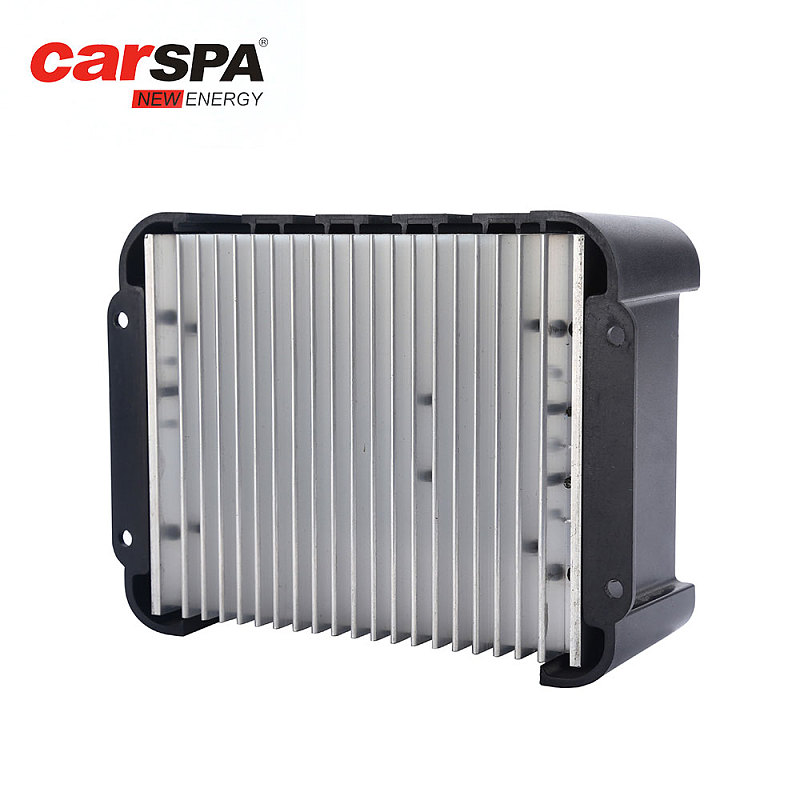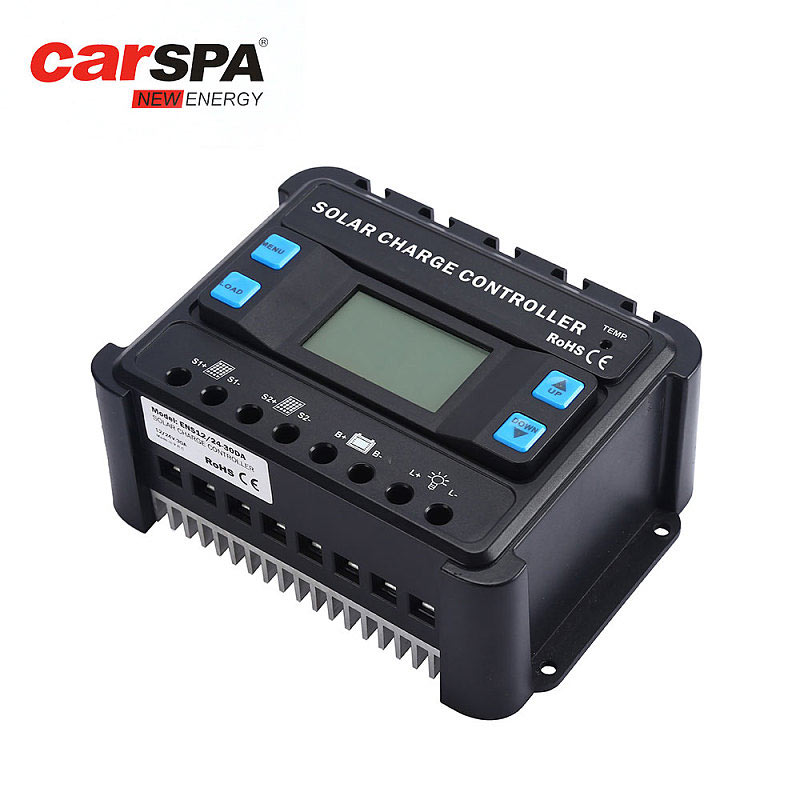What does A solar charge controller do?
Harnessing the power of the sun through solar systems is an increasingly popular and sustainable way to meet your energy needs. At the heart of these systems, solar charge controllers play a vital role. This device plays a major role in ensuring the efficiency and longevity of your solar system. This article will take a deep dive into the functions of a solar charge controller, whether you need one, and how to select and size one.
What is a Solar Charge Controller?
A solar charge controller is one of the key components in a solar power system. Its main function is to regulate the current and voltage from the solar panels to the battery, ensuring that the battery can be charged safely and efficiently. Here are the main functions of a solar charge controller:
1. Preventing Overcharging: When the solar panels produce more power than the battery can handle, the battery is at risk of overcharging. Overcharging not only shortens the life of the battery, but can also pose a safety hazard. A charge controller prevents overcharging from happening by monitoring and regulating the current to ensure that the battery is charged within a safe voltage range.
2. Preventing Overdischarge: Without a charge controller, the battery can be over-discharged, especially at night or on cloudy days. In this case, the battery can become damaged or even fail completely. The charge controller monitors the battery voltage and automatically cuts off the current supply when the voltage drops to a certain level to prevent the battery from over-discharging.
3. Prevent reverse current: At night or when there is insufficient light, the current in the battery may flow back to the solar panel, which not only wastes the stored energy but also may damage the panel. The charge controller can prevent this reverse current from occurring and protect the various components of the system.
4. Optimize the charging process: Modern charge controllers usually have multi-stage charging algorithms such as constant current charging, constant voltage charging, and floating charging. These algorithms can be adjusted according to the different states of the battery to improve charging efficiency and extend battery life.
Do I need A charge controller for solar?
Regardless of the size of the system, a solar charge controller is an indispensable component in a solar power generation system. Here are some factors you need to consider to decide whether a charge controller is needed:
1. System protection: Without a charge controller, the battery is susceptible to overcharging, over-discharging, and reverse current. This not only shortens the battery life, but can also cause safety risks. Therefore, using a charge controller can effectively protect the battery and other system components.
2. Improve system efficiency: Charge controllers improve charging efficiency by optimizing the charging process, allowing batteries to store energy faster and more efficiently. This is especially important for systems that need to use solar energy efficiently.
3. Economic benefits: Although charge controllers require additional investment, in the long run, they can extend the life of batteries and reduce the frequency of battery replacement, thereby saving costs.
4. System size and purpose: For small solar systems, some people may think that charge controllers can be omitted, but even for small systems, battery protection and efficiency improvement cannot be ignored. Therefore, regardless of the size of the system, using a charge controller is a wise choice.
5. Environmental factors: Solar systems are usually installed outdoors and face various severe weather and temperature changes. Charge controllers can provide stable battery charging, adapt to various environmental conditions, and ensure stable operation of the system under different climate conditions.
6. Technological progress: Modern solar charge controllers are intelligent and automated, and can monitor and adjust the system operation status in real time, providing more efficient energy management and a more convenient user experience. These technological advances make charge controllers even more indispensable in solar systems.
How to select and size a solar charge controller?
There are several factors to consider when selecting and sizing a solar charge controller, including the size of your solar system, battery type, maximum current, and voltage. Here are the detailed steps and recommendations:
1. Determine the system voltage: First, you need to determine the voltage level of your solar system, such as 12V, 24V, or 48V. This will directly affect the choice of charge controller. Most charge controllers indicate the supported voltage range, so when selecting, make sure the controller matches the system voltage.
2. Calculate the maximum current: To determine the current size of the charge controller, you need to calculate the maximum current that the solar panel will produce at peak power. For example, if your solar panel has a peak power of 300W and the system voltage is 12V, the maximum current is about 25A (300W ÷ 12V = 25A). When selecting a charge controller, it is recommended to choose a current specification slightly higher than the calculated value to ensure the reliability and safety of the system.
3. Choose the control type: There are two main types of solar charge controllers on the market: PWM (Pulse Width Modulation) and MPPT (Maximum Power Point Tracking). PWM controllers are less expensive and suitable for small systems, while MPPT controllers are more efficient and are particularly suitable for large-scale systems and applications that require maximum energy utilization. Choose the right type of controller based on your budget and system requirements.
4. Consider environmental factors: The performance of the charge controller may be affected by the ambient temperature. In high or low temperature environments, the efficiency and life of the controller may decrease. Therefore, choosing a controller with temperature compensation function or ensuring that the controller is installed in an environment with suitable temperature can improve the reliability of the system.
5. Check other features: Modern charge controllers usually have a variety of additional features, such as LCD display, data logging, remote monitoring, etc. These features can provide more system information and control options, making management and maintenance more convenient. Choosing a controller with these features according to your needs can improve the user experience of the system.
6. Brand and quality: Choosing a well-known brand and high-quality charge controller can ensure higher reliability and longer service life. There are many different brands and models of charge controllers on the market. When choosing, you need to check user reviews and professional reviews to ensure that the selected product can meet actual needs.
7. Compatibility: It is crucial to ensure the compatibility of the charge controller with solar panels and batteries. Devices of different brands and models may differ in interface and performance. Choosing a controller with good compatibility can avoid the trouble of system integration.
Conclusion
Solar charge controllers play a key role in solar power generation systems, protecting batteries and other components of the system by regulating and optimizing the charging process. Regardless of the size of the system, using a charge controller is key to ensuring efficient and safe operation of the system. Choosing the right charge controller requires considering multiple aspects such as system voltage, maximum current, control type and environmental factors. By carefully selecting and correctly using a charge controller, you can maximize the performance and life of your solar system and achieve sustainable energy utilization. Whether you are a home user or a commercial user, understanding and applying this knowledge can make your solar system more efficient, reliable and economical.








